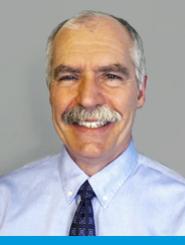Website to merge into Ochsner.org on August 8!
ochsner.org
ochsner.org

In their third year of school, medical students begin to choose their specialties, rotating through each one - Internal Medicine, Surgery, OB/GYN, Psychiatry and Pediatrics. I have my third-year students read The Official MD Handbook. Written as farcical comedy, the book is pretty spot-on about the real lives of various kinds of doctors. According to the book, a favorite pediatrician activity is “selecting new toys for the office waiting room and spending all afternoon ‘testing’ the toys - for safety of course!”
Play has been called “the work of childhood,” important for a child’s (and pediatrician’s) mental health. In one study of growth-delayed children in Kingston, Jamaica, parents were taught how to talk to and interact with their underweight babies and toddlers. Not surprisingly, the kids whose parents chatted and played with them more had a laundry list of benefits into adulthood: fewer fights or violent behavior, higher I.Q.s and academic achievement and less depression and social isolation.
When kids play together, they imitate behaviors that will serve them in adulthood. They practice following rules and respecting them, so things are fair and everyone shares the fun. They learn to lose gracefully in a safe environment, and not just in board games or tag, but in accepting not telling the best story or joke.
Children who get these benefits of play help me by not visiting the Emergency Department. How many of those kids did I not see for suicidal thinking, and have to admit to a psychiatric facility? How many did I not see with broken hands from punching other kids, or needing stitches in their faces after receiving said punches? How many fewer stress-related headaches and stomachaches? The lessons for parents and schools are clear: kids need more free, unstructured play time and recess time. Sure, academics are important, but so is happiness and real-life success.
When my kids were little, they invented an imaginary world they called “Silly Language.” They drew it in pictures and acted it out with their stuffed animals. Its denizens spoke gibberish (hence the name), and as my son remembers, “many disasters befell Silly Language.” One character in particular was a pig who sailed a pig-shaped boat. His boat inevitably sank and sad expressions were drawn on his face.
As we mentioned above, play is the work of childhood. Besides killing themselves laughing at the foibles of Silly Language, my kids also cooperated to create their pretend world. Besides cooperation, children at play learn other specific operations important in later life. They use math to keep scores, practice language skills as they negotiate and explain the rules of a game and try out design with blocks and Legos. No wonder study after study shows kids who play with each other have improved academic achievement and life success.
My kids were 8, 6, and 4 years old on September 11, 2001. I grew up in New Jersey near the World Trade Center towers, often visiting them or taking subways under them all the way up through medical school. My kids must have picked up on some of my sorrow. Silly Language then had its own 9/11. This was a healthy way for my children to process such an event, playing it out in a way they could understand.
Many school administrators and parents push academic success by increasing class time. They treat sports the same - more practice time, more time specializing in one sport, to chase college scholarships or, even more against the odds, lucrative pro careers. They cut out time for simple play, at recess, in playrooms and in the backyard. Yet simple play is a foundation for the very success we're after. Play is the work of childhood - let them get to work!